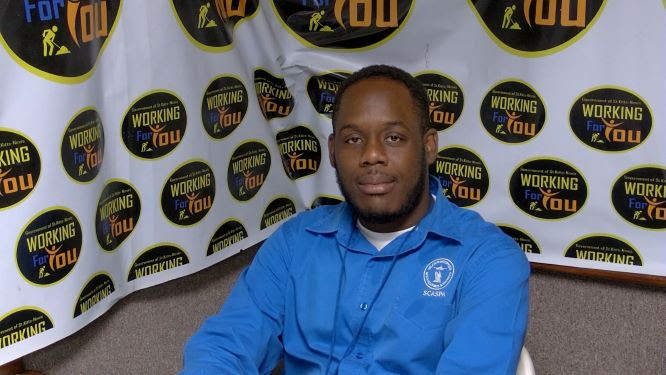Weather Forecast Is Based on Most Accurate Information, Says Senior Met Officer
Basseterre, St. Kitts, April 29, 2021 (SKNIS): Elmo Burke, St. Kitts’ Senior Met Officer at SCASPA (St. Christopher Air and Sea Ports Authority), said that the weather forecast at times does not pan out the way it was predicted, but the prediction was based on the most accurate information received at the time.
Mr. Burke was at the time speaking on the April 28 edition of “Working for You.”
“People have a tendency to say that the weather forecast was wrong and I always argue against that,” he said. “The reason I give is that, yes the information didn’t pan out in terms of what we forecast or didn’t play out in reality, but based on the information that we had at the time, that was the best and the most accurate information in terms of output or the outcome that we anticipate.”
The Senior Met Officer said that the weather is normally predicted based on what it might be six to 12 hours down the line.
“Within that six-hour time span, things can change and as such you recognize it is very important for us as forecasters to keep updating the information because we cannot be static, we have to be dynamic because all of these fluxes in the weather will have changed in terms of the output down the line,” he said. “As such, we have to be adjusting our forecast not to cover our tail, but to adjust to any changes that might have happened that the models or we didn’t pick up initially.”
Mr. Burke said that as forecasters, they assess the current conditions as they need to know what is occurring at the time.
“At the same time we use a lot of our technology and we use what we call numerical weather models,” he said. “Those are basically programmes that try to model the weather in terms of the atmospheric conditions, what is was then at a particular time and place, what it is now, and based on quite a bit of dynamics and calculations we try to do projections, that is, what it is likely to be. The models will give us an idea of what it is likely to be.”
He continued, “We as the forecasters, that is where the human component comes in; we now have to assess the output of the model to say are we seeing a bias, is it over-performing on a particular parameter because, for example, some models would overshoot in terms of the rainfall estimate, some overshoot in terms of how the winds are going to be. So, these little biases you have to really understand and appreciate for when you are going to be doing your forecast.”
Mr. Burke said that in some instances five model outputs are taken into consideration when forecasting the weather in St. Kitts and Nevis.
“So, we are assessing all of these variables in terms of whether you are looking at the winds, the temperature, the pressure, the rainfall likelihood, and all of this information and we are trying to come up with a storyline, what is the weather likely to be during the next forecast period that we are looking at,” he said. “The forecast period can be a short time. So, it’s a description of what it is likely to be.”

